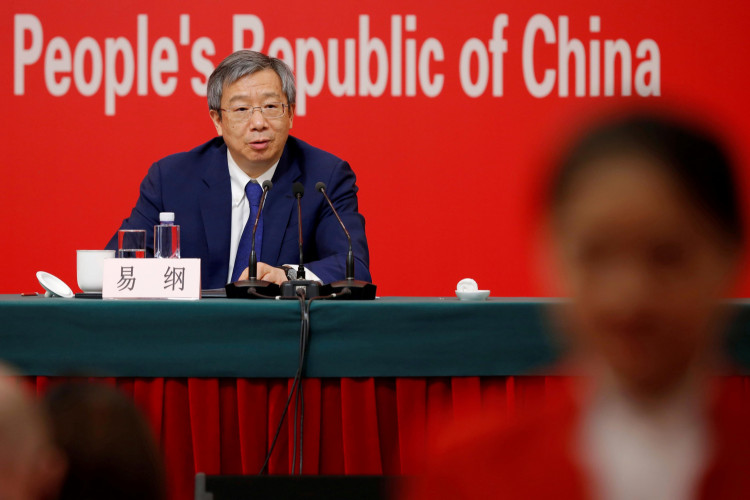China's central bank did not quite offer any comfort of sorts to bond traders as it allowed last week's enormous cash infusions to mature.
The plunge in Monday's sovereign notes accelerated, pushing the 10-year yield benchmark up most since April. According to the 14-day relative strength index on the rate, sales momentum increased to the strongest since late 2017.
Risk appetite has come back as markets become more hopeful that next month China and the US will conclude a conditional trade deal.
Elsewhere, bets for vigorous monetary easing have deteriorated as the inflation of the Asian nation in September rose at a faster pace than anticipated.
The People's Bank of China abstained late Monday from using a targeted method to add one-year cash infusions, effectively draining a 50 billion net yuan ($7.1 billion) out of the financial framework as previously issued reverse repurchase contracts lapsed.
Officials are expected to come up with an indication of their willingness to maintain low borrowing costs as another 540 billion yuan of short-term funds are set to be due in the next coming days.
Stephen Chiu, an Asian currency and rate strategist at Bloomberg Intelligence, said sovereign notes could drop further towards the confirmation of a trade deal in November.
If the yield is close to 3.4 percent, the debt will look attractive, he said, adding the rate could fall to 3.2 percent -3.3 percent by year-end. "I don't believe it could last the risk-on attitude. To call it a happy end of the trade war is too early," he said.
The yield on 10-year government bonds in China grew 6-base points to 3.3 percent in Shanghai. Since hitting an almost three-year low in early September, the cost has jumped 29 basis points, making the notes some of Asia's worst-performing.
The 12-month interest rate swaps of the yuan have risen to 2.84 billion, the maximum since May, indicating that markets are pricing in greater liquidity.
There is no question that the economy of China is weakening. Industrial income dropped from a year earlier in September by 5.3 percent, the worst downturn since 2015.
Yet the credit profile of China Inc continues to be growing. So far, just $8.6 billion in unpaid debt have rejected their securities, relative with $15.3 billion in 2018, data compiled by Bloomberg indicate.
Now that Beijing welcomes foreign money with open arms, one may be tempted to enter the bond market of $13 trillion. A similar amount is yielding negative interest rates elsewhere around the world.





